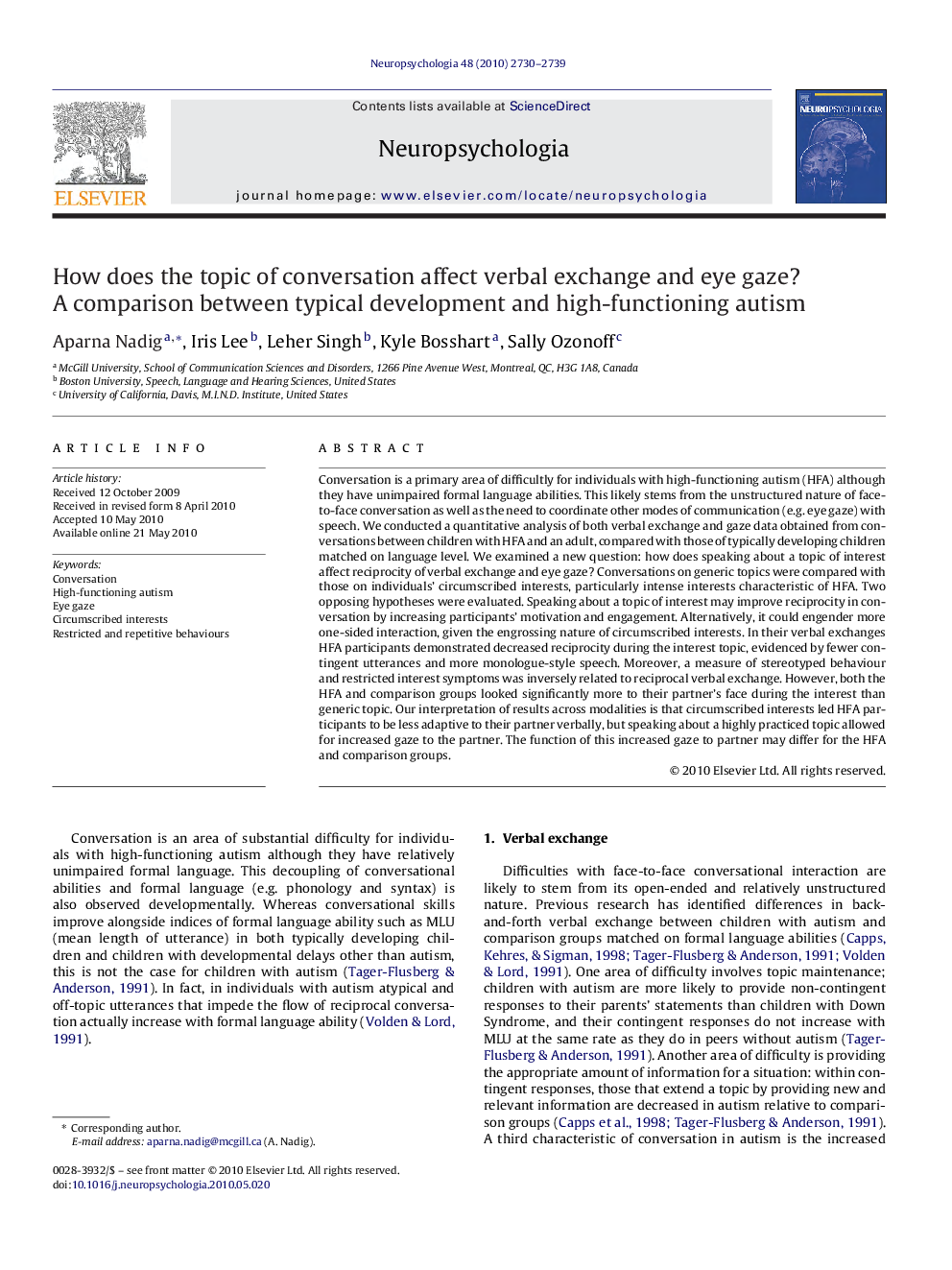| کد مقاله | کد نشریه | سال انتشار | مقاله انگلیسی | نسخه تمام متن |
|---|---|---|---|---|
| 945045 | 925753 | 2010 | 10 صفحه PDF | دانلود رایگان |

Conversation is a primary area of difficultly for individuals with high-functioning autism (HFA) although they have unimpaired formal language abilities. This likely stems from the unstructured nature of face-to-face conversation as well as the need to coordinate other modes of communication (e.g. eye gaze) with speech. We conducted a quantitative analysis of both verbal exchange and gaze data obtained from conversations between children with HFA and an adult, compared with those of typically developing children matched on language level. We examined a new question: how does speaking about a topic of interest affect reciprocity of verbal exchange and eye gaze? Conversations on generic topics were compared with those on individuals’ circumscribed interests, particularly intense interests characteristic of HFA. Two opposing hypotheses were evaluated. Speaking about a topic of interest may improve reciprocity in conversation by increasing participants’ motivation and engagement. Alternatively, it could engender more one-sided interaction, given the engrossing nature of circumscribed interests. In their verbal exchanges HFA participants demonstrated decreased reciprocity during the interest topic, evidenced by fewer contingent utterances and more monologue-style speech. Moreover, a measure of stereotyped behaviour and restricted interest symptoms was inversely related to reciprocal verbal exchange. However, both the HFA and comparison groups looked significantly more to their partner's face during the interest than generic topic. Our interpretation of results across modalities is that circumscribed interests led HFA participants to be less adaptive to their partner verbally, but speaking about a highly practiced topic allowed for increased gaze to the partner. The function of this increased gaze to partner may differ for the HFA and comparison groups.
Journal: Neuropsychologia - Volume 48, Issue 9, July 2010, Pages 2730–2739